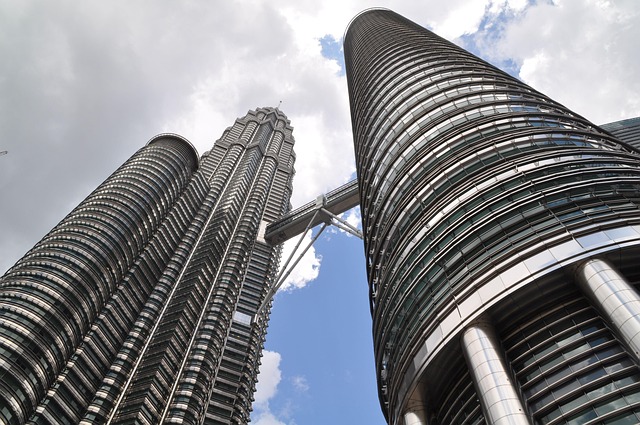Emergency Dumpster Services: Montclair NJ Experts Guide

In unexpected situations like natural disasters or construction projects, efficient waste management…….
Welcome to an in-depth exploration of the vital role played by dumpster companies, specifically focusing on Montclair, New Jersey (NJ). In today’s fast-paced world, efficient waste management is not just a service but a critical component of sustainable urban development. This article aims to dissect the intricacies of the dumpster company industry, with a special emphasis on its operations in Montclair NJ. We will navigate through various facets, from understanding the core business to global trends, technological innovations, and regulatory frameworks. By the end, readers will grasp the significance of these companies and their impact on local communities and the environment.
Definition: A dumpster company, in its essence, is a specialized waste management service provider that offers temporary storage solutions for various types of waste materials. These companies facilitate efficient collection, transportation, and disposal or recycling of waste, catering to both residential and commercial clients.
Montclair NJ Context: In the quaint yet vibrant town of Montclair, NJ, dumpster companies have become an integral part of the local landscape. With a thriving retail and service industry, as well as a substantial residential population, the demand for efficient waste disposal services is high. These companies provide much-needed support to residents, businesses, and construction sites by offering large containers (dumpsters) for collecting solid waste, recyclables, or even specific types of materials like concrete or electronics.
Core Components:
Dumpster Rental: The primary service involves renting out dumpsters in various sizes to accommodate different waste generation needs. Sizes range from compact 10-yard containers suitable for small renovation projects to massive 40-yard units for large construction sites.
Waste Collection and Hauling: Once the dumpster is filled, the company arranges for its collection and transportation to a designated disposal or recycling facility. This process requires specialized vehicles and skilled drivers.
Disposal and Recycling: Responsible dumpster companies ensure that waste is either recycled, repurposed, or disposed of in environmentally approved facilities. This commitment is crucial for minimizing the environmental impact of waste generation.
Historical Perspective: The concept of dumpster rental services has evolved over time, driven by growing environmental awareness and stricter waste management regulations. In the past, local municipalities often handled waste collection, but with increasing urban populations and complex waste streams, private companies have become indispensable. Today, they offer tailored solutions, catering to diverse client needs while adhering to stringent environmental standards.
The influence of dumpster companies extends far beyond Montclair NJ, as this industry has captured global attention due to several factors:
Urbanization: Rapid urbanization in many countries has led to a surge in construction activities, increasing the demand for efficient waste management solutions. Dumpster companies are well-positioned to cater to these needs, especially in densely populated urban centers.
Environmental Concerns: Growing global awareness about climate change and environmental degradation has driven the need for sustainable waste management practices. Many countries have implemented stringent regulations, encouraging dumpster companies to adopt eco-friendly operations.
Technological Integration: The industry is witnessing a digital transformation, with companies leveraging technology for improved service delivery. GPS tracking, online booking systems, and real-time inventory management are some trends shaping the future of dumpster rentals.
Regional Differences:
North America: In the United States and Canada, the dumpster company industry is well-established, with a strong focus on customer service and diverse equipment offerings. Companies in these regions often cater to both residential and commercial clients, providing specialized services like debris removal after natural disasters.
Europe: European countries have stringent environmental regulations, prompting dumpster companies to embrace eco-friendly practices. The use of biodegradable materials and advanced recycling technologies is prevalent across the continent.
Asia Pacific: Rapid economic growth in this region has led to increased demand for waste management services, particularly in urban centers like Tokyo and Shanghai. Asian dumpster companies are exploring innovative solutions to handle the unique challenges posed by dense populations and limited land areas.
The dumpster company industry is a significant contributor to the global economy, generating substantial revenue and employment opportunities. Here’s an economic snapshot:
| Economic Aspect | Details |
|---|---|
| Market Size | The global waste management market, which includes dumpster rental services, was valued at USD 143.7 billion in 2021 and is projected to grow at a CAGR of 5-6% from 2022 to 2030. |
| Revenue Streams | Companies earn revenue through dumpster rental fees, waste collection contracts with municipalities, and recycling initiatives. Additional income may come from selling recycled materials or providing specialized services like hazardous waste disposal. |
| Employment Impact | According to industry reports, the waste management sector employs over 2 million people worldwide, including drivers, dispatchers, and administrative staff. |
| Investment Trends | Private equity firms and venture capitalists are showing increasing interest in dumpster companies, recognizing their potential for growth and positive environmental impact. Many startups are leveraging technology to disrupt the traditional industry. |
Economic Drivers:
Waste Generation Growth: Rising populations, changing consumption patterns, and industrialization drive waste generation, creating a steady demand for dumpster services.
Regulatory Compliance: Stricter environmental regulations encourage businesses to partner with dumpster companies for compliant waste management solutions.
Sustainability Focus: Growing consumer awareness of sustainability practices influences businesses to adopt eco-friendly waste disposal methods, fostering demand for specialized services.
Technology plays a pivotal role in transforming the dumpster company industry, enhancing efficiency and customer experience:
GPS Tracking and Real-Time Monitoring: Dumpster companies now employ GPS technology to track vehicle locations, optimize routes, and provide real-time updates to customers regarding delivery and pickup schedules. This ensures better service precision and reduces operational costs.
Online Booking and Payment Systems: Digital platforms allow customers to book dumpsters online, providing transparent pricing and convenient payment options. These systems streamline the booking process, reduce paperwork, and enhance customer satisfaction.
Smart Waste Management: Internet of Things (IoT) devices and sensors are being integrated into dumpsters to monitor fill levels, enabling efficient collection scheduling. This technology also aids in identifying areas with high waste generation for targeted recycling initiatives.
Autonomous Vehicles: The development of autonomous waste collection vehicles has the potential to revolutionize the industry. These self-driving trucks can navigate through tight urban spaces, reduce labor costs, and improve overall efficiency.
The dumpster company industry is subject to various laws and regulations aimed at ensuring environmental protection, public safety, and fair business practices:
Environmental Regulations: Many countries have stringent rules regarding waste disposal, emissions, and land use. Dumpster companies must adhere to these standards, adopting eco-friendly practices and technologies.
Licensing and Permits: Operating a dumpster rental business typically requires obtaining licenses and permits from local authorities, ensuring compliance with health, safety, and environmental standards.
Health and Safety Standards: Companies are bound by regulations that mandate proper training for employees, use of protective gear, and adherence to safety protocols during waste handling and transportation.
Disposal Facility Regulations: The locations and operations of waste disposal facilities are subject to strict oversight to prevent environmental contamination and ensure safe waste management practices.
Despite its growth and technological advancements, the dumpster company industry faces several challenges and criticisms:
Environmental Concerns: One of the primary critiques is the potential environmental impact of waste disposal facilities, including land pollution and emissions. Companies must continually strive for sustainable practices and collaborate with local communities to address these concerns.
Price Volatility: Dumpster rental prices can be influenced by various factors, leading to volatility. This poses challenges in budgeting and pricing strategies for both companies and clients.
Labor Shortages: The industry often faces skilled labor shortages, impacting operational efficiency. Addressing this requires investment in training programs and attracting a diverse talent pool.
Competition and Market Saturation: In some regions, intense competition can lead to market saturation, putting pressure on prices and profit margins. Companies need to differentiate their services and explore niche markets to sustain growth.
Proposed Solutions:
Adopting Green Technologies: Investing in eco-friendly technologies and practices can help reduce environmental footprints and mitigate criticisms. This includes implementing advanced recycling techniques, using electric vehicles, and adopting renewable energy sources.
Transparent Pricing Models: Companies can enhance customer trust by offering clear and transparent pricing structures, avoiding hidden fees, and providing detailed service packages.
Community Engagement: Building strong relationships with local communities through stakeholder engagement and public outreach can address environmental concerns and foster a positive image.
Diversification and Innovation: Exploring new service offerings, expanding into niche markets, and embracing technological innovations are strategies to stay competitive in a dynamic industry.
Setting: A major city undergoing a significant urban renewal project with strict environmental guidelines.
Challenge: The construction team needed a reliable dumpster service provider that could handle large volumes of debris while adhering to stringent environmental standards.
Solution: GreenTech Dumpster Services, a leading company in sustainable waste management, was engaged. They provided:
Outcome: The successful collaboration resulted in:
Scenario: A small town looking to modernize its waste management system and improve customer experience.
Approach: Tech Dumpster, a forward-thinking company, introduced an innovative digital platform for dumpster rentals.
Features:
Impact:
The dumpster company industry is poised for continued growth and transformation, driven by emerging trends:
Sustainable Practices: There will be an increasing emphasis on eco-friendly operations, including the use of electric vehicles, biodegradable containers, and advanced recycling technologies.
Digital Integration: The digital revolution will continue to shape the industry, with more companies adopting online booking, mobile payments, and IoT for improved service delivery.
Niche Services: Specialized dumpster rental services catering to unique needs like event waste management or construction debris removal will gain traction.
Regulatory Compliance: With stricter environmental regulations, dumpster companies will need to stay updated on legal requirements and invest in technologies that ensure compliant operations.
Strategic Considerations:
Diversification of Service Offerings: Companies should explore additional services like recycling consultations, waste reduction workshops, or even waste-to-energy solutions to enhance their value proposition.
Data Analytics for Optimization: Leveraging data analytics can optimize route planning, inventory management, and customer targeting, leading to improved operational efficiency.
Partnerships and Collaborations: Strategic alliances with local authorities, environmental groups, and construction companies can open new business opportunities and strengthen industry-wide sustainability efforts.
The dumpster company industry in Montclair NJ, like its global counterparts, is a dynamic and essential component of modern urban life. From understanding its historical roots to embracing technological advancements, these companies have evolved to meet the challenges of a changing world. As we look ahead, the focus on sustainability, digital transformation, and specialized services will shape the future landscape.
By navigating economic considerations, addressing challenges, and learning from successful case studies, dumpster companies can contribute significantly to waste management goals while ensuring long-term viability. The industry’s ability to adapt, innovate, and collaborate will be crucial in creating a more sustainable and resilient future for both local communities and the global environment.
Q: How do dumpster companies ensure environmental sustainability?
A: Dumpster companies prioritize sustainability through eco-friendly practices like using biodegradable containers, implementing on-site recycling programs, and adopting electric or alternative-fuel vehicles for collection. Many also partner with local recycling facilities to ensure proper disposal of recyclables.
Q: What are the benefits of online booking systems for dumpster rentals?
A: Online booking systems offer customers convenience, providing real-time availability, transparent pricing, and easy payment options. For companies, these platforms streamline operations, improve customer satisfaction, and generate valuable data for marketing and service enhancements.
Q: How can I choose the right dumpster company for my project?
A: Consider factors like local reputation, service offerings, price transparency, environmental practices, and customer reviews. Requesting quotes from multiple companies and comparing services is essential. Ensure they have the necessary licenses and insurance to protect yourself and your property.
Q: Are there any regulations I should be aware of when renting a dumpster?
A: Yes, dumpster rentals are subject to local and regional regulations regarding waste disposal, noise levels, parking restrictions, and permits for specific locations. Always check with the rental company and local authorities to ensure compliance to avoid fines or legal issues.
Q: What happens if I need to change my dumpster rental schedule?
A: Most companies accommodate schedule changes upon reasonable notice. Contact your provider promptly to discuss any adjustments, and they will do their best to accommodate your needs while ensuring efficient operations.

In unexpected situations like natural disasters or construction projects, efficient waste management…….

In Montclair, NJ, The Dumpster Rental Guys at 546 Valley Rd are a top choice for dumpster rental due…….

Dumpster rentals from local companies like The Dumpster Rental Guys in Montclair, NJ, are essential…….

In Montclair, New Jersey, The Dumpster Rental Guys at 546 Valley Rd stands out as the top choice for…….

Emergency debris removal in Montclair, NJ requires a local Dumpster Company like The Dumpster Rental…….

Looking for hassle-free dumpster rentals in Montclair, New Jersey? The Dumpster Rental Guys at 546 V…….

Montclair, NJ communities rely on local dumpster companies like The Dumpster Rental Guys (973) 554-9…….

Facing cleanout projects in Montclair, NJ? Dumpster rental services from local companies like The Du…….

Understanding your waste removal needs is crucial for projects in Montclair, NJ. Local experts like…….